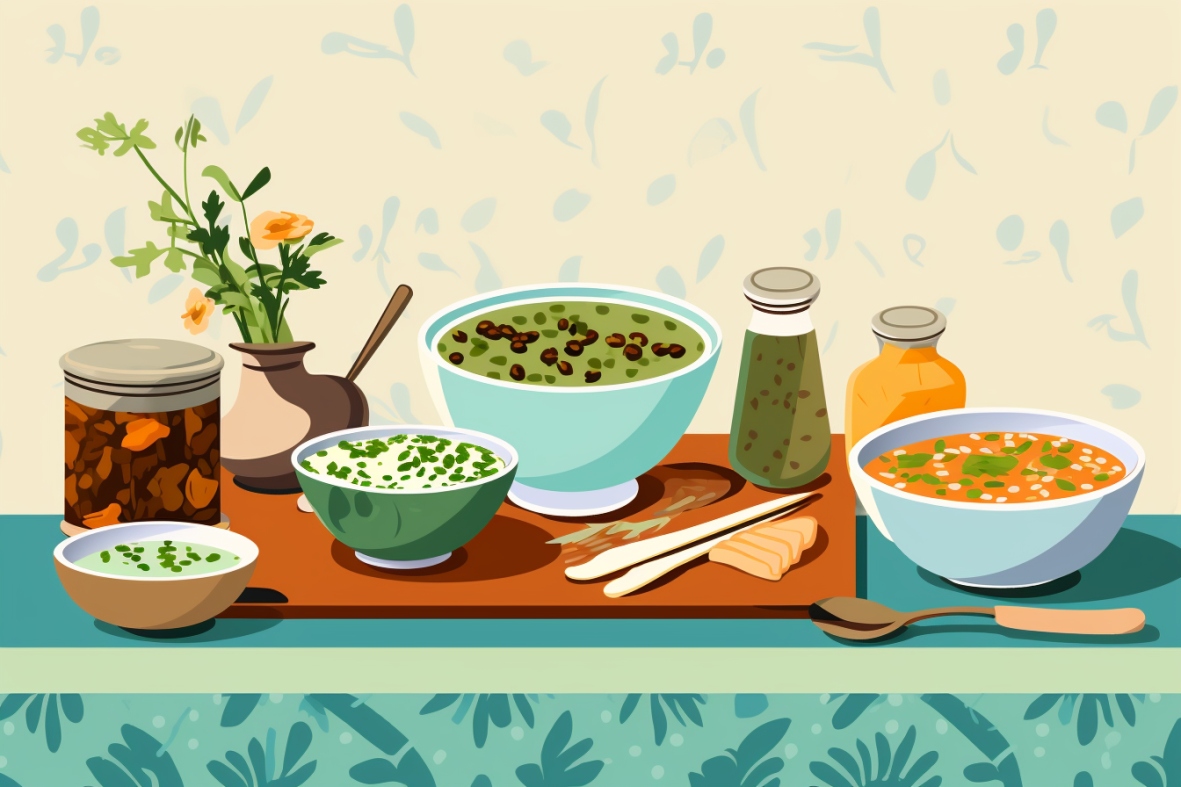
Body + Mind is reader-supported. We may earn an affiliate commission when you buy through some of the links on our site.
The human heart beats 2.5 billion times over the average lifetime, pumping blood, hormones, oxygen and other essential compounds to every inch of your body with each passing second. When the heart stops, life itself comes to a screeching halt. Therefore, caring for your heart is crucial to living a long and healthy life.
Although most people develop some type of cardiovascular disease as they age, heart complications are preventable. A healthy lifestyle can nip heart-harming habits in the bud and keep your blood pumping for many years to come. Begin cultivating healthier routines by cleaning up your diet and adding the following foods to you shopping list.
Leafy green vegetables like Swiss chard, kale and spinach are rich in essential nutrients. Darker varieties are chock full of vitamins, minerals and antioxidants. Plus, they happen to be the richest sources of vitamin K, a nutrient that promotes proper blood clotting and a healthy heart. Since this vitamin is fat-soluble, you can toss or sauté your leafy greens in some olive to make them more readily available for absorption.
On top of being a great source of protein, edamame — or soybeans — are also good for your heart. Just like their leafier counterparts, these little green pods are brimming with vitamin K. However, they’re also rich in fiber and antioxidants. Like other beans, edamame is low in carbs, making it a good choice for someone with high blood sugar. They may even reduce the risk of heart disease by lowering cholesterol levels and improving your blood lipid profile.
Oats, barley, farro brown rice and other whole grains are superfoods when it comes to supporting heart health. Compared to refined grains like white bread, whole grains are higher in fiber and lower on the glycemic index. They may even help reduce bad cholesterol, blood pressure and your chances of developing heart disease. When purchasing whole grains, avoid purchasing products that list wheat flour and multigrain on the label as these terms don’t always denote whole grains.
Protect yourself from oxidative stress and inflammation by adding some berries to your favorite smoothie or your morning bowl of yogurt. Strawberries, blueberries, blackberries and raspberries are rich in antioxidants that can reduce several risk factors for heart disease. From controlling blood pressure and blood clotting to decreasing bad cholesterol, these varieties offer some unique health benefits. Berries also contain polyphenols, which can improve cardiovascular risk profiles and glucose metabolism.
If you love seafood or take fish oil supplements, your heart is probably in tip-top shape. Salmon, sardines, mackerel and other types of fatty fish contain omega-3 fatty acids. These acids can help reduce levels of cholesterol, blood triglycerides and systolic blood pressure. Ultimately, these benefits translate to better arterial function and a lower risk of heart disease. Experts recommend eating at least two servings of fish each week to support long-term health.
Garlic has a staple in ayurvedic culture for centuries and many people have used it to treat a variety of ailments. However, research has only recently confirmed that garlic can improve heart health by reducing arterial stiffness and blood stickiness. Garlic supplements can even reduce blood pressure in hypertensive patients, similarly to prescription medication. Allicin, the active component in garlic, seems to be the secret behind these amazing health benefits.
If coffee didn’t have such a monopoly on beverage culture, green tea would certainly be getting more attention. Nevertheless, drinking green tea comes with a plethora of health benefits. From increasing fat-burning to reducing inflammation, this beverage does it all. Regarding heart health, this variety of tea can improve insulin sensitivity and lower your blood pressure and LDL levels. Take a supplement, drink matcha or brew a pot of hot tea to reap the benefits.
Are you looking for a midday pick-me-up? Grab an orange. This bright fruit is highly nutritious and is most famous for its high vitamin C content. However, oranges also contain pectin, choline, zeaxanthin and fiber, all of which can support heart health. Their high potassium content can lower the risk of stroke and cardiovascular diseases as well by effectively lowering your blood pressure. Enjoy this sweet citrus raw, in liquid form or as a zest over your favorite dessert.
When it comes to choosing heart-healthy foods, the best way to support your ticker is to fill your plate with color. Eat the rainbow with vibrant fruits, dark green veggies and grains that match all the colors of the earth. Diversifying your foods and switching up the menu will ensure you get all the necessary nutrients for a healthy heart and a happier you.
Your email address will only be used to send you our newsletter, and at any time you may unsubscribe. For more information, see our Privacy Policy.